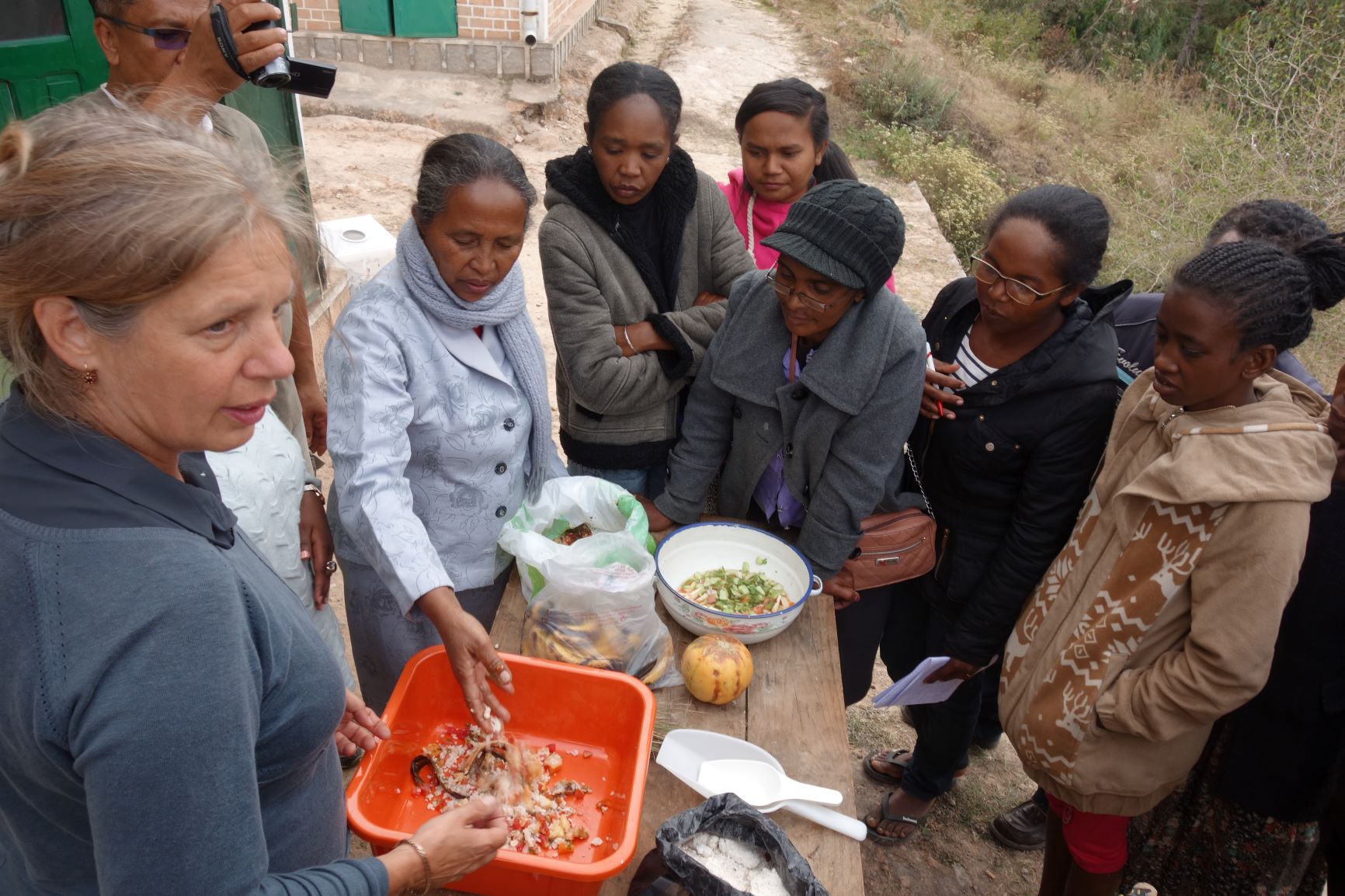Elevator Pitch: “Sorority”
“What does sorority mean to you?”
This is what ZEF Junior Researcher Namrata Rawat and Maryoriet Salgado decided to ask people around ZEF during an elevator pitch. What experience they want to share on sisterhood and women rights can be read in part 2 “Sorority has been excluded from the developing vocabularies”.
The interviews where possible thanks to the help of Ana Yuwen.
Pling! Hello! What does sorority mean to you?
Fraternity among women
says Rodolfo from El Salvador. He translates Sorority into “Sororidad”. An example of Sorority in his country:
“El Salvador has one of the most restrictive laws in the world relating to abortion, basically penalizing the procedure as homicide regardless of the circumstances. Because of such severe legislation, many women have been incarcerated for having an abortion, even in cases that later have been proved to be accidental miscarriages. As a response to these cases, groups of women across El Salvador have demonstrated for the revision of these sentences and organized legal assistance for the affected women. So far, some of the convicted women have been liberated free of charges. However, much remains to be done to exonerate all other unfairly convicted women.”
Building healthier relationships
To not feel excluded on the decision making process, sorority is about building healthier relationships among genders, explains Anna Yuwen from the USA. An example of Sorority in her country:
“I remember those roles being constructed very early on within my family’s Asian heritage. I would want to spend time with my Dad, while he had conversations with his friend and my mom would tell me to come with her instead. I mean, maybe there was nothing wrong If I stayed with my Dad, you know?”
Safe space to talk on issues
Anna from Germany would think of it as a place where women can be themselves, where they have a safe space to talk about issues they can’t talk about when they are in a mixed gender group. She would use “sorority” for getting together with people – and for a more organized movement the German term “Bündnis”.
I was once celebrating New Years’ Eve with a sorority of students of music. For me it was the first time I experienced such a group. It could be a very welcoming place where it felt like just going out with a group of friends without any link to any political stuff or anything. It was a really nice evening.
More self-dependent at regional level
Philipp is from Austria. For him, sorority means independence, some kind of capacity to do stuff for yourself and your community, to not be dependent on some larger attachment, to be more self-dependent at local regional scale.
If a small community more on the rural side becomes independent from more global financial trading patterns by creating more local products and trading it within their own localities, that means sorority for me.
How women connect with themselves
Fernanda from Brazil is reminded by Sorority as fraternity of female students commonly founded at US-Colleges. Going beyond the concept of fraternities, she thinks that sorority means how women connect with each other. To not see each other in a competitive way or as a rival, but yet to be stronger and empowered together.
In Portuguese, it translates to sororidade. It is still a new word for most of Brazilians, so it is also common to call it “woman empowerment” or “feminism”, she tells.
I can think of several examples since Brazil is experiencing a shift from generally viewing a woman as an enemy to seeing her as a partner (or as someone to be supported).
The soap operas, very famous across the country, have gone from stories of conflict between women to stories of women getting together to be overcome hard situations. In our presidential elections this year, the demonstration initiated by women, was the largest in the country, bringing together millions of men and women supporting the hashtag #elenao (#nothim).
Some other initiatives are “buy from a girl” to promote female sellers and “recommend a girl” for jobs application. There is also an initiative that I personally find super valid: an app that maps dangerous streets or places for girls (based on formal and informal reports of harassment) and recommends alternative and more secure pathways. alternative and more secure pathways.
Not be afraid of forming strong female friendship
“I would personally never use the word “sorority”; it wouldn’t come to me naturally because reminds me of American teenage movies”, tells us a ZEF junior researcher Poornima of India.
“I would instead use the word sisterhood. That word for me has strong political connotation – that as feminists we have to be pulling each other up and not be afraid of forming strong female friendships.”
In Hindi, there has always been a word for brotherhood, but no natural, common parlance word for sisterhood. It’s only by literally translating the sisterhood, you get a Hindi word for it which means behenchara.
I cherish strong female relationships more after realizing how important and rare they are. When you are younger, you often find yourself saying- ‘Oh I don’t get along with girls’ ‘Oh I get along better with boys’ ‘Oh I am tomboyish’. And you say all these things thinking you’re complementing yourself. Saying ‘I am not like the other girls’ implying that other girls are something else and I am something else. Now I proudly say that I am a very typical Indian girl.
The Quality of women to defend and support each other
“Sorority is the quality of women to defend and support each other”, tells a ZEF junior researcher. “It translates into Sororidad, which has a Latin origin and I guess it exist in languages all over Europe”, states Marco from Spain.
In my grandparents’ village, during the last years, the carnival has been organized only by the women. Men do not bother to spend their time on it. By doing so, among other activities throughout the year, women keep a village affected by severe depopulation alive by their own initiative and under their own term







